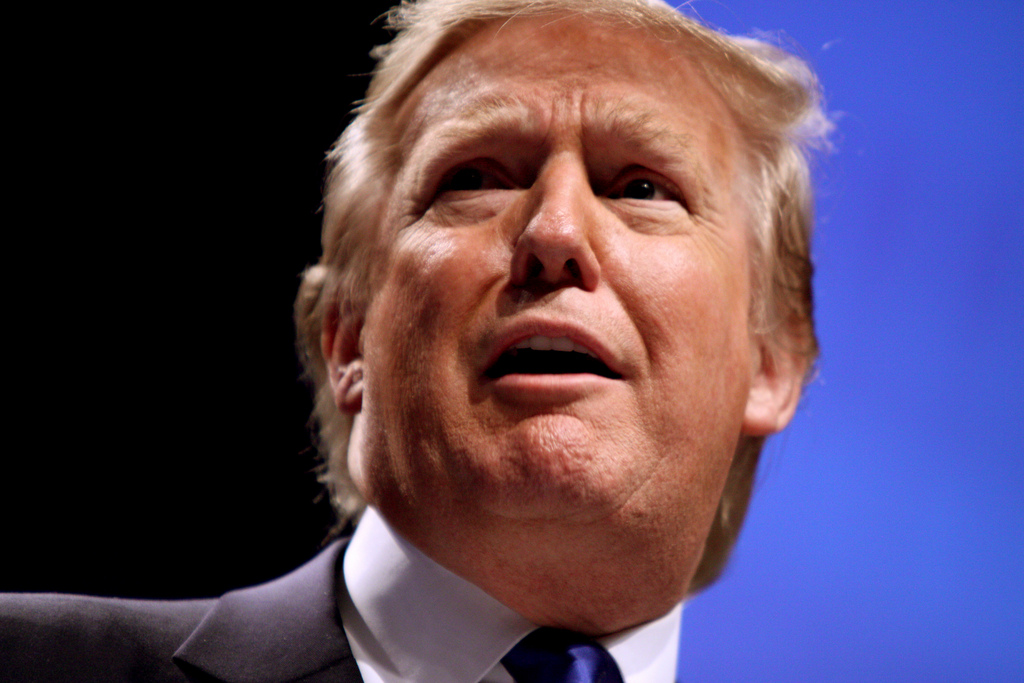On Jan. 27, 2016, Prime Minister Justin Trudeau was roundly criticized when his statement marking International Holocaust Memorial Day made no direct mention of the millions of Jews murdered during the Shoah. The Prime Minister’s Office quickly apologized for the omission, claiming the comment came from an incorrect draft, and released a new statement in short order that highlighted the importance of fighting anti-Semitism.
Exactly one year later, U.S. President Donald Trump came under fire for his own International Holocaust Memorial Day message. It failed to address the specific Jewish tragedy of the Shoah or the scourge of anti-Semitism, instead citing “the depravity and horror inflicted on innocent people by Nazi terror.” (Even the reliably pro-Trump Zionist Organization of America publicly expressed concern with the president’s statement.) But, unlike Trudeau, Trump’s team doubled down on its message, with one of the administration’s spokespeople claiming, “We are an incredibly inclusive group and we took into account all of those who suffered.”
‘when anyone, unwittingly or not, downplays the distinct anti-Semitism of the Holocaust, it feels like a kick to the gut’
Jews are rightly piqued when the particularly Jewish tragedy of the Shoah is whitewashed. For all of those groups the Nazis persecuted and murdered – including Roma, gays and those with physical and mental disabilities – Jews were the prime target of the Nazi killing machine. Ever since, Jews have worked, with a good deal of success, to educate the world about the horrors of the Holocaust. It is a message that we are particularly sensitive about now as the generation of survivors continues to age. So when anyone, unwittingly or not, downplays the distinct anti-Semitism of the Holocaust, it feels like a kick to the gut.
And yet, despite the particularly Jewish tragedy, the Holocaust should also act as a universal warning against genocide, hatred, racism and intolerance. That is, after all, the beauty of “never again.” It is a message with an unmistakable meaning for Jews – not to mention one of the rallying cries that helped establish the State of Israel – but it also carries a global warning: if it could happen to the Jews, it could happen to anyone.
Ultimately, these two lessons of the Holocaust – the particular and the universal – are not contradictory. On the contrary, they build on each other and strengthen one another. When it comes to the Shoah, the message has to start with anti-Semitism, but it shouldn’t end with that – there is enough space to memorialize six million murdered Jews and to also extend the moral outward.
Unfortunately, that seems to be lost on the new American president. Hours after his unsatisfying Holocaust statement was released, Trump issued his now-infamous executive order blocking citizens of seven countries from entering the United States for 90 days and suspending the intake of refugees for 120 days (Syrian refugees have been barred indefinitely).
The timing of the two announcements was certainly conspicuous. Indeed, the travel ban appeared to implicitly belie the supposed philosophy behind the Trump administration’s Jew-less marking of International Holocaust Memorial Day.
More than 70 years after the Holocaust, the two lessons of the Shoah – of the dangers of anti-Semitism in particular, and intolerance and hatred writ large – seemed to have gone missing from the White House.
